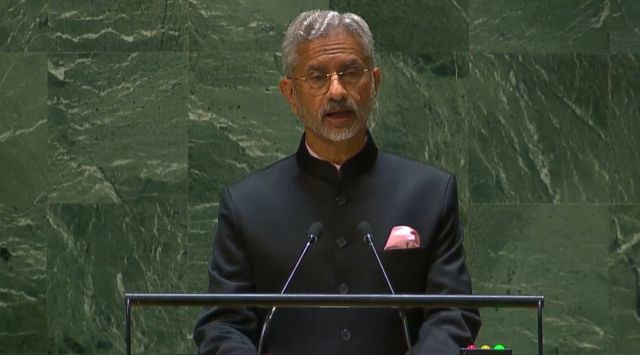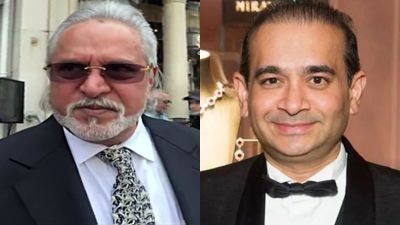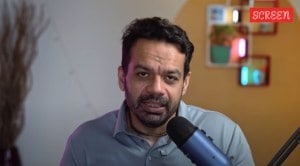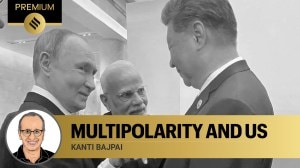AMID THE ongoing diplomatic row between India and Canada, External Affairs Minister S Jaishankar said on Tuesday that “political convenience” should not be allowed to determine a country’s response to “terrorism, extremism and violence”.
Jaishankar’s remarks, in his address at the United Nations General Assembly (UNGA), are being seen as a veiled attack on Canada. Last week, India accused Canada of being a “safe haven” for “terrorists, extremists and organised violence”, in response to Canadian Prime Minister Justin Trudeau’s allegation about a “potential link between agents of the Government of India” and the killing of pro-Khalistan separatist leader Hardeep Singh Nijjar.

Targeting “rule-makers”, Jaishankar also said that “respect for territorial integrity and non-interference in internal affairs cannot be exercises in cherry-picking” — a reference to Trudeau’s statement that any involvement of a foreign government in the killing of a Canadian citizen on Canadian soil was an “unacceptable violation of our sovereignty”.
Story continues below this ad
While Jaishankar’s comments are also perceived to be directed at Pakistan and China, the reference to “rule-makers” points towards Canada, which is part of the G7 grouping and exercises influence because of its close alliance with the US.
While this was Jaishankar’s first remarks on the India-Canada row, he framed it in the context of a global rules-based order. He also underlined that “the days when a few nations set the agenda and expected others to fall in line are over”.
“In our deliberations, we often advocate the promotion of a rules-based order. From time to time, respect for the UN Charter is also invoked. But for all the talk, it is still a few nations who shape the agenda and seek to define the norms. This cannot go on indefinitely. Nor will it continue to go unchallenged,” said Jaishankar, who spoke for about 17 minutes.
“A fair, equitable and democratic order will surely emerge, once we all put our minds to it. And for a start, that means ensuring that rule-makers do not subjugate rule-takers. After all, rules will work only when they apply equally to all,” he said.
Story continues below this ad
“We must never again allow an injustice like vaccine apartheid to recur. Climate action too cannot continue to witness an evasion of historical responsibilities. The power of markets should not be utilised to steer food and energy from the needy to the wealthy,” he said, in a swipe at the developed countries.
“Nor must we countenance that political convenience determines responses to terrorism, extremism and violence. Similarly, respect for territorial integrity and non-interference in internal affairs cannot be exercises in cherry-picking,” he said.
“When reality departs from rhetoric, we must have the courage to call it out. Without genuine solidarity, there can never be real trust. This is very much the sentiment of the Global South,” he said, invoking the sentiments of the developing and under-developed countries.
Calling for expansion of the UNSC, Jaishankar recalled the “Voice of Global South Summit” at the beginning of India’s presidency of the G20 and entry of the African Union as a permanent member of the G20 at India’s initiative. “We gave voice to an entire continent which has long been denied its due. This significant step in reform should inspire the United Nations, a much older organisation, to also make the Security Council contemporary. Broad representation is a prerequisite for both effectiveness and credibility,” he said.
Story continues below this ad
Starting his speech with “Namaste from Bharat” – a branding of the name Bharat, instead of India, at the biggest global stage — Jaishankar sought to position India as a responsible power. “All countries pursue their national interests. We, in India, have never seen that as being in contradiction with global good. When we aspire to be a leading power, this is not for self-aggrandisement but to take on greater responsibility and make more contributions. The goals we have set for ourselves will make us different from all those whose rise preceded ours,” he said.
He recounted India’s vaccine diplomacy, disaster relief to Turkey and Syria, aid to Sri Lanka during the economic crisis, and assistance to Pacific Islands in health, environment and technology. He also mentioned the outcomes of the G20 declaration as part of India’s efforts and achievements amid turmoil and conflicts.
“The world is witnessing an exceptional period of turmoil. As it is, structural inequities and uneven development have imposed burdens on the Global South. But stresses have been aggravated by the impact of the Covid-19 pandemic and the repercussions of ongoing conflicts, tensions and disputes. As a result, socio-economic gains of recent years have been rolled back,” he said, reiterating a familiar theme from last year.
“Resources for sustainable development are severely challenged. And many countries really struggle to make ends meet. Navigating the future appears even more daunting,” he said.
Story continues below this ad
“At this juncture, it was with a sense of exceptional responsibility that India took up the presidency of the G20. Our vision of ‘One Earth, One Family, One Future’ sought to focus on the key concerns of the many, not just the narrow interests of a few. In the words of Prime Minister Narendra Modi, it was to bridge divides, dismantle barriers and sow seeds of collaboration that nourish a world, where unity prevails over discord and where shared destiny eclipses isolation. The New Delhi G-20 Leaders’ Declaration articulates our collective ability to do so,” he said.
“At a time when East-West polarisation is so sharp and North-South divide so deep, the New Delhi Summit also affirms that diplomacy and dialogue are the only effective solutions. The international order is diverse and we must cater for divergences, if not differences. The days when a few nations set the agenda and expected others to fall in line are over,” he said.
“As the United Nations itself symbolises, finding common ground is an imperative. To listen to others and to respect their viewpoints is not weakness; it is the basics of cooperation. Only then can collective efforts on global issues be successful,” Jaishankar said.
“Next year, the United Nations will be hosting the summit of the future. This should serve as a serious opportunity to drive change, champion fairness and reform multilateralism, including the expansion of the Security Council memberships. We must address global challenges imbued with the conviction that we are one earth and one family, with one future,” he said.
Story continues below this ad
This was Jaishankar’s second address at the UNGA as the country’s External Affairs Minister.









